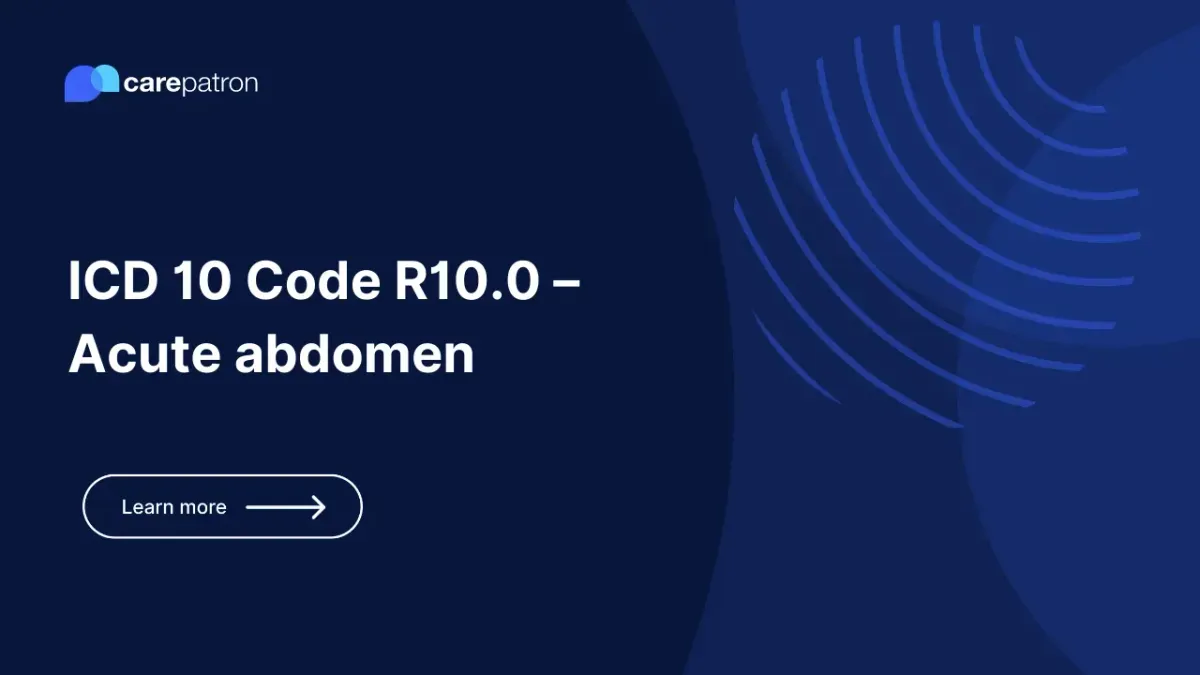
R10.0 – Acute abdomen
Discover the ICD-10 CM code R10.0 for acute abdomen. Learn about its symptoms, causes, and urgent medical attention needed.
Use Code
Commonly asked questions
If you have sudden and severe abdominal pain and other concerning symptoms, it is essential to seek immediate medical attention. The acute abdomen can indicate a serious underlying condition requiring prompt evaluation and treatment.
Various conditions, including appendicitis, cholecystitis, intestinal obstruction, perforated viscus, pancreatitis, and ectopic pregnancy can cause acute abdomen. Determining the specific cause requires a thorough medical assessment.
The need for surgery in acute abdomen depends on the underlying cause. While some cases may require surgical intervention, others can be managed conservatively with appropriate medical treatment. A healthcare professional will determine the most suitable approach based on the patient's condition.
EHR and practice management software
Get started for free
*No credit card required
Free
$0/usd
Unlimited clients
Telehealth
1GB of storage
Client portal text
Automated billing and online payments
